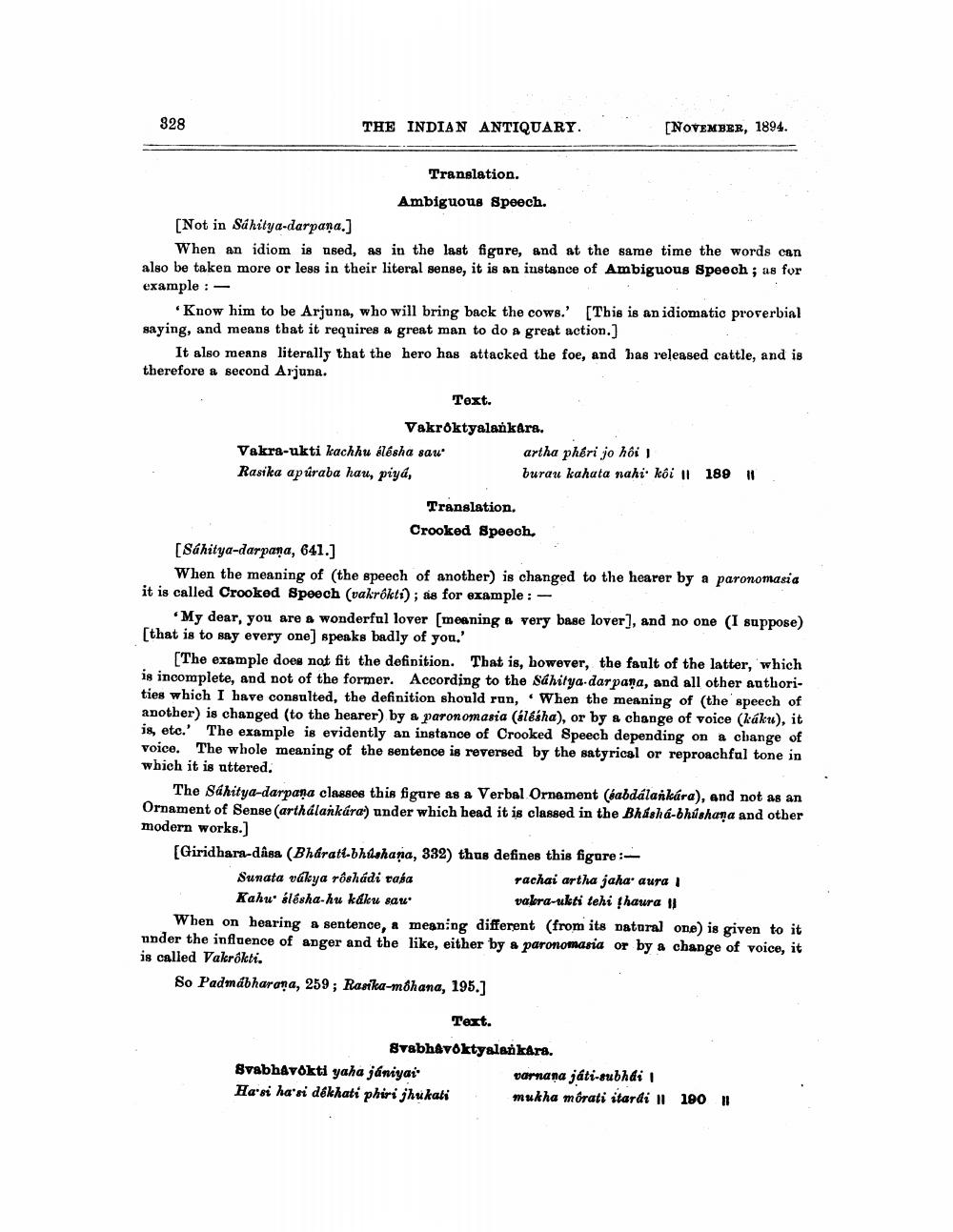________________
328
THE INDIAN ANTIQUARY.
Translation.
Ambiguous Speech.
[Not in Sahitya-darpana.]
When an idiom is used, as in the last figure, and at the same time the words can also be taken more or less in their literal sense, it is an instance of Ambiguous Speech; as for example:
'Know him to be Arjuna, who will bring back the cows.' [This is an idiomatic proverbial saying, and means that it requires a great man to do a great action.]
It also means literally that the hero has attacked the foe, and has released cattle, and is therefore a second Arjuna.
Text.
Vakroktyalankara.
Vakra-ukti kachhu élésha sau Rasika apúraba hau, piya,
Translation.
[NOVEMBER, 1894.
Crooked Speech,
artha phêri jo hội I
burau kahata nahi kôi | 189 ||
[Sahitya-derpaa, 641.]
When the meaning of (the speech of another) is changed to the hearer by a paronomasia it is called Crooked Speech (vakrókti); as for example: -
'My dear, you are a wonderful lover [meaning a very base lover], and no one (I suppose) [that is to say every one] speaks badly of you.'
[The example does not fit the definition. That is, however, the fault of the latter, which is incomplete, and not of the former. According to the Sahitya-darpana, and all other authorities which I have consulted, the definition should run, When the meaning of (the speech of another) is changed (to the hearer) by a paronomasia (élésha), or by a change of voice (kaku), it is, etc.' The example is evidently an instance of Crooked Speech depending on a change of voice. The whole meaning of the sentence is reversed by the satyrical or reproachful tone in which it is uttered.
The Sahitya-darpana classes this figure as a Verbal Ornament (éabdálankára), and not as an Ornament of Sense (arthálankára) under which head it is classed in the Bhasha-bhushana and other modern works.]
[Giridhara-dâsa (Bharati-bhashana, 332) thus defines this figure:
Sunata vakya róshádi vasa
Kahu élésha-hu káku sau
rachai artha jaha aura vakra-ukti tehi haura
When on hearing a sentence, a meaning different (from its natural one) is given to it under the influence of anger and the like, either by a paronomasia or by a change of voice, it is called Vakrókti.
So Padmabharana, 259; Rasika-mohana, 195.]
Text.
Svabhavoktyalankara.
Svabhavokti yaha janiyai Hasi hasi dêkhati phiri jhukati
varnana játi-subhái | mukha morati itardi || 100 |




